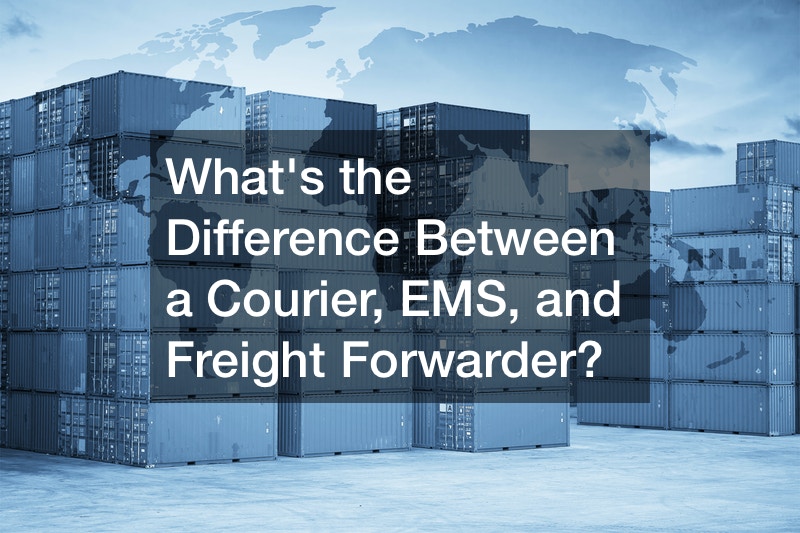Customers who ship cargo internationally have multiple options. This video discusses the differences between couriers, EMS, and freight forwarders.
Even those who don’t use the word “courier” are likely familiar with the three largest worldwide couriers: FedEx, UPS, and DHL. Each company owns aircraft. Combined with their systematic methods and ability to avoid the standard custom process for lower-value and lighter goods (under 45k), this means faster shipping speeds.
Couriers charge based on weight and destination, making them ideal small-volume shipments. Couriers cannot ship live animals or plants, hazardous items, or fresh foods.
EMS partners with postal companies such as The U.S. Postal Service in each country to send international packages processed as postal goods. Although cheaper, customers may struggle to track lost packages sent via EMS because of those different companies involved.
Freight forwarders are international transportation agents without their own vehicles who coordinate transportation with other companies. They’re more flexible than couriers because they don’t rely on one set shipping method. Instead, a freight forwarder can propose shipment by air, sea, or courier depending on the customer’s needs. If customers don’t always prioritize speed or cost or ship large volumes of goods, freight forwarder services may be the best option.






